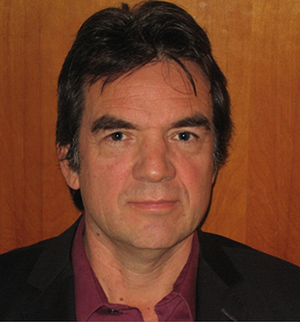
Guatemala Conference: Jorge Ramon Gonzalez-Ponciano
USC Shoah Foundation Center for Advanced Genocide Research will host the international conference “A Conflict? Genocide and Resistance in Guatemala,” at the University of Southern California, Sept. 11-14, 2016. The scholars profiled in this series were each selected to present their research at the conference.
Jorge Ramon Gonzalez-Ponciano will look back over one hundred years in Guatemala’s history to examine what he believes was one of the earliest triggers of the Guatemalan Genocide in the 1980s.
Gonzalez-Ponciano is a research professor Center for Multidisciplinary Research of Chiapas and the South Border (CIMSUR), National Autonomous University of Mexico (UNAM). He is also a visiting professor at Stanford and author of the book This Blood Is Not Clean: Racism, the State and the Nation in Guatemala (1944-1997).
Gonzalez-Ponciano’s paper “Racism and the Indigenous Population in the Guatemalan Press Before and After the Genocide” addresses the extermination and enslavement of indigenous Guatemalans as reported by media in Guatemala from the late 19th century until the years after the signing of peace accords in December 1996. He argues that the origin of genocidal violence against the Guatemalan population goes back not only to the widely known colonial debate on the humanity of the Indians, but also to the strategic decision of the oligarchic elite who preferred the institutionalization of forced, coerced or poorly paid labor as the best method to achieve the civilization of the Indians.
"In Guatemala we grow up without the possibility of thinking about the future."
This perspective has been ignored by national and foreign researchers, Gonzalez-Poniano says, despite its significance for understanding the genocide. Newspapers and official documents from the 1890s characterize the indigenous population as lazy, poor, criminal, frugal and uneducated, all of which was used to justify the forced labor, low-wage system. This system would later pave the way for this same population to be targeted for genocide and dispossession of their land in the 20th century.
Gonzalez-Ponciano said his expectations are high for the conference. He believes it is the very first time in international history that such a group of Guatemalan Genocide scholars, witnesses and victims are going to discuss “many things that have been radically excluded from the official history of our country.”
“In Guatemala we grow up without the possibility of thinking about the future because of the institutionalization of terror, the level of impunity and the psychological inhibition to denounce the atrocities that were committed in the name of the war against Communism,” Gonzalez Ponciano said. “It seems to me that this conference, among many other issues, is going to provide new guidelines for the research and writing about what happened during the terrible decades of political violence in Guatemalan highlands, lowlands and urban centers.”
The conference at USC Shoah Foundation Center for Advanced Genocide Research is an opportunity for collective healing, he added. It will aid in Guatemalans’ process of re-building their country and visualizing a future with human dignity.
“The academic inquiry on the human and institutional destruction of our country is crucial for the recovery of the silenced memory of many people that suffered and are still waiting for an opportunity to know the whereabouts of their relatives, friends and acquaintances,” he said.
Photo courtesy Stanford University